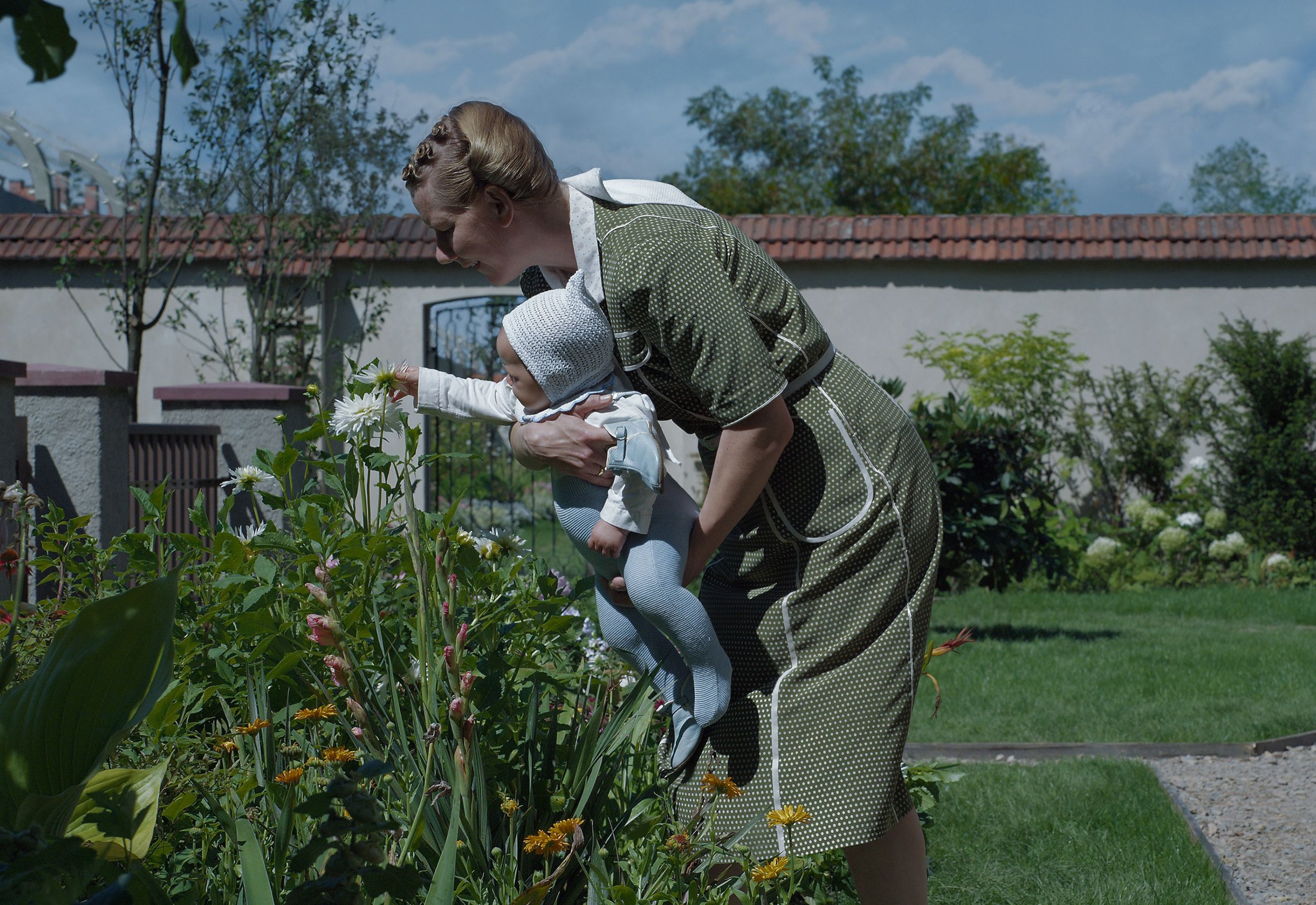The Zone of Interest: Jonathan Glazer’s Devastating Holocaust Tale Too Vital to Miss
By Karen Gordon
Rating: A+
Inspired by a novel by the late Martin Amis, writer-director Jonathan Glazer’s adaptation of The Zone of Interest is perhaps the year's best: a quiet and devastating movie that takes an unusual approach to its subject matter.
The film focuses on Rudolph Höss, the longest-serving commandant of the Auschwitz death camp —responsible for overseeing the murder of over a million Jews among others — and his wife Hedwig.
But this isn’t an ordinary Holocaust movie. Instead, Glazer’s focus is in exploring the psyche of the people who were able to perpetuate horror, to live next to it, and look the other way.
Glazer’s oblique approach starts with a black screen and a soundscape that sounds mechanical and inhuman. When the screen shifts, we see an idyllic scene: a family on a sunny day, lounging on the grassy meadow overlooking a lovely river.
Rudolph and Hedwig (Christian Friedel and Sandra Hüller, both formidable) and their five young children are enjoying a quiet afternoon. Their good fortune at having this property is due to Rudolph’s posting as commandant of Auschwitz, which has allowed them to create the lifestyle they’ve always hoped for.
Read our interview with Christian Friedel
The couple lives in a beautiful, orderly house that is spitting distance from Auschwitz, with a garden that Hedwig designed and nurtured over four years, complete with a wading pool. It is their dream home.
Glazer never takes us into Auschwitz, but the camp looms in the background, over the garden wall, through the windows in the house, the guard tower, the barbed wire, the endless amount of smoke and ash from the crematoria, and the intermittent sounds of guns, of orders barked, of pain.
Rudolph, as Hedwig observes, is dedicated to his work. And as we see, he’s s the ultimate ambitious bureaucrat: aware that his higher ups are judging his work and is driven to impress. In an early scene he meets with a couple of men, executives from a company who have designed a new crematorium they believe is more efficient and has more capacity.
The tone is of men doing business, detached from the feelings you’d imagine people talking about mass murder might have. Once the meeting is done, Rudolph joins his family for dinner. Later, he comforts his daughter and reads her a bedtime story.
For her part, Hedwig is a no-nonsense woman who rules over the house, ordering around the servants — who give her a wide berth — taking care of the children, gossiping with some of the local ladies when they come by for tea, and or enjoying her garden, her children, and the quiet life.
As Rudolph is having his meeting, Hedwig accepts a sac of goods, confiscated from the prisoners. She sorts through them and goes to her room with some luxury items. A tube of lipstick, a full-length fur coat. Swirling in front of the mirror she decides to keep the fur and checks the hem — perhaps knowing that the owner might have sewn valuables into the lining — before sending it out to be cleaned.
Later in the film, Hedwig’s mother comes to visit. Hedwig takes her on a tour of the property. Her mother admires the property, the beautiful gardens. Hedwig laughs as she says she’s been nicknamed the Queen of Auschwitz.
And so, The Zone of Interest is about this couple, living their very ordinary lives, raising kids, entertaining guests, enjoying a sunny day with the family, cut off from the reality of the horror, the reality of torture, murder, genocide going on just over the stone wall. A reality that Rudolph is facilitating without mercy, but rather with his eyes on impressing his superiors.
Glazer — who built parts of the film from accounts of witnesses and survivors — keeps us at a distance from the couple, observing them, in a way that is almost non-judgemental. But as the film moves on, it starts to evoke something in the viewer. For me, a growing sense of unease, and nausea.
There is no growing tone of menace, no rising crescendo. Instead, Glazer shows us short scenes, small gestures. Rudolph is a workaholic, efficient and personally ambitious with a startling detachment from the outcomes of what he’s doing. Hedwig is interested in living in this house with her gardens and brushes off the lives of the people dying over the wall, in shockingly casual ways.
Did these people compartmentalize their humanity? Or were they just able to squash human feelings for others, to cross moral boundaries, to buy into an ideology, simply because it was to their advantage to do so? At the Nuremberg Trials, the real Höss claimed he was “just following orders.”
Glazer doesn’t carry his reserve and distance through to the end of the movie. He leaves us with the nauseating reality of what Höss — with his focus on efficiency — did.
This is, incredibly, only the fourth film that Glazer has made in a 20-plus year career, and each one has been terrific. He is a thoughtful and deliberate filmmaker, who is drawn to projects that examine more challenging aspects of human nature, or as the Globe and Mail’s Barry Hertz says, “when he does step behind the camera, the world seems to tremble just a little more than it did before.”
The Zone of Interest is a careful movie, observant. It’s a movie that asks us to reckon with history, with human nature and, in today’s world with the drumbeat of fascism rising again. Call it a caution.
The Zone of Interest. Written and directed by Jonathan Glazer. Starring Christian Friedel and Sandra Hüller. In theatres December 22.



